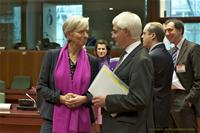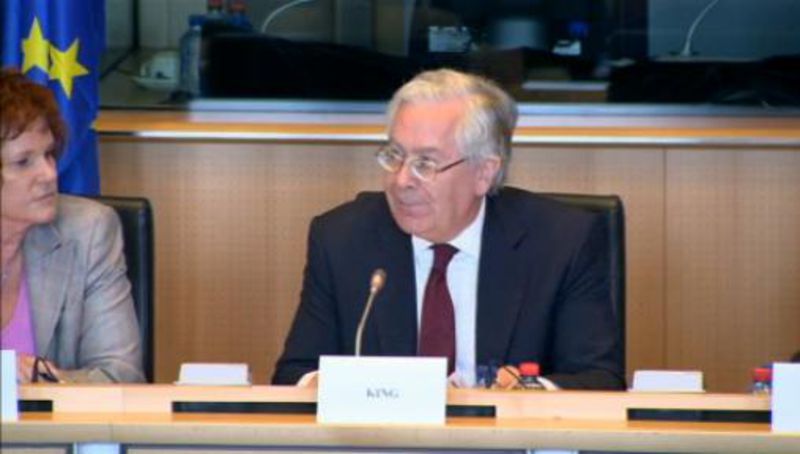ECOFIN: Greece is doing well
Ralitsa Kovacheva, March 18, 2010
 The European Union is satisfied with the austerity measures of the Greek government, aimed at putting back to track Greece's enormous debt and growing budgetary deficit. The 27 EU ministers of finance announced they were satisfied with the first report of the Greek government. They support the European Commission assessment that the additional measures, proposed by the government in Athens in the beginning of March, "are enough to achieve the budgetary targets for 2010 and are defined as effective, sufficient and timely".
The European Union is satisfied with the austerity measures of the Greek government, aimed at putting back to track Greece's enormous debt and growing budgetary deficit. The 27 EU ministers of finance announced they were satisfied with the first report of the Greek government. They support the European Commission assessment that the additional measures, proposed by the government in Athens in the beginning of March, "are enough to achieve the budgetary targets for 2010 and are defined as effective, sufficient and timely".
In the official announcement from the ministers' meeting on Tuesday, the issues discussed in the Eurogroup were not commented - about a possible bail-out plan for Greece, financed by the eurozone members.
There was no agreement, either, on the hedge funds regulation, in spite of the  efforts of the Spanish Presidency. The main reason, as participants in the meeting commented, was the lack of consensus around the British position. According to the Financial Times, for which this was a cover page issue, the talks were postponed until after the elections in Britain.
efforts of the Spanish Presidency. The main reason, as participants in the meeting commented, was the lack of consensus around the British position. According to the Financial Times, for which this was a cover page issue, the talks were postponed until after the elections in Britain.
And regarding the idea of a European Monetary Fund, there were no official comments by the financial ministers. As euinside already reported, the German proposal for the creation of a European Fund, very much alike the IMF, is generally being supported by eurozone member states and by the Commission. The question is though, whether only the 16 euro area members should take part in it or EU of 27, as well as would this need a change in the Lisbon Treaty, which forbids euro area members to bail-out other members.
 In the meantime in an interview for the EUobserver, the Belgian prime minister Yves Leterme said that a transition towards a single governance of some or all of EU economies, was inevitable. He meant the proposal of an EMF as well as his own idea of a European Debt Agency, launched in the beginning of the month.
In the meantime in an interview for the EUobserver, the Belgian prime minister Yves Leterme said that a transition towards a single governance of some or all of EU economies, was inevitable. He meant the proposal of an EMF as well as his own idea of a European Debt Agency, launched in the beginning of the month.
"It's about Europe's financial stability and it's not an ideological debate about federalism. I myself am a federalist. But more integration and deeper integration are simply logical consequences of having a single currency", Leterme added.
 | © European Union
| © European Union | © European Union
| © European Union | © European Union
| © European Union